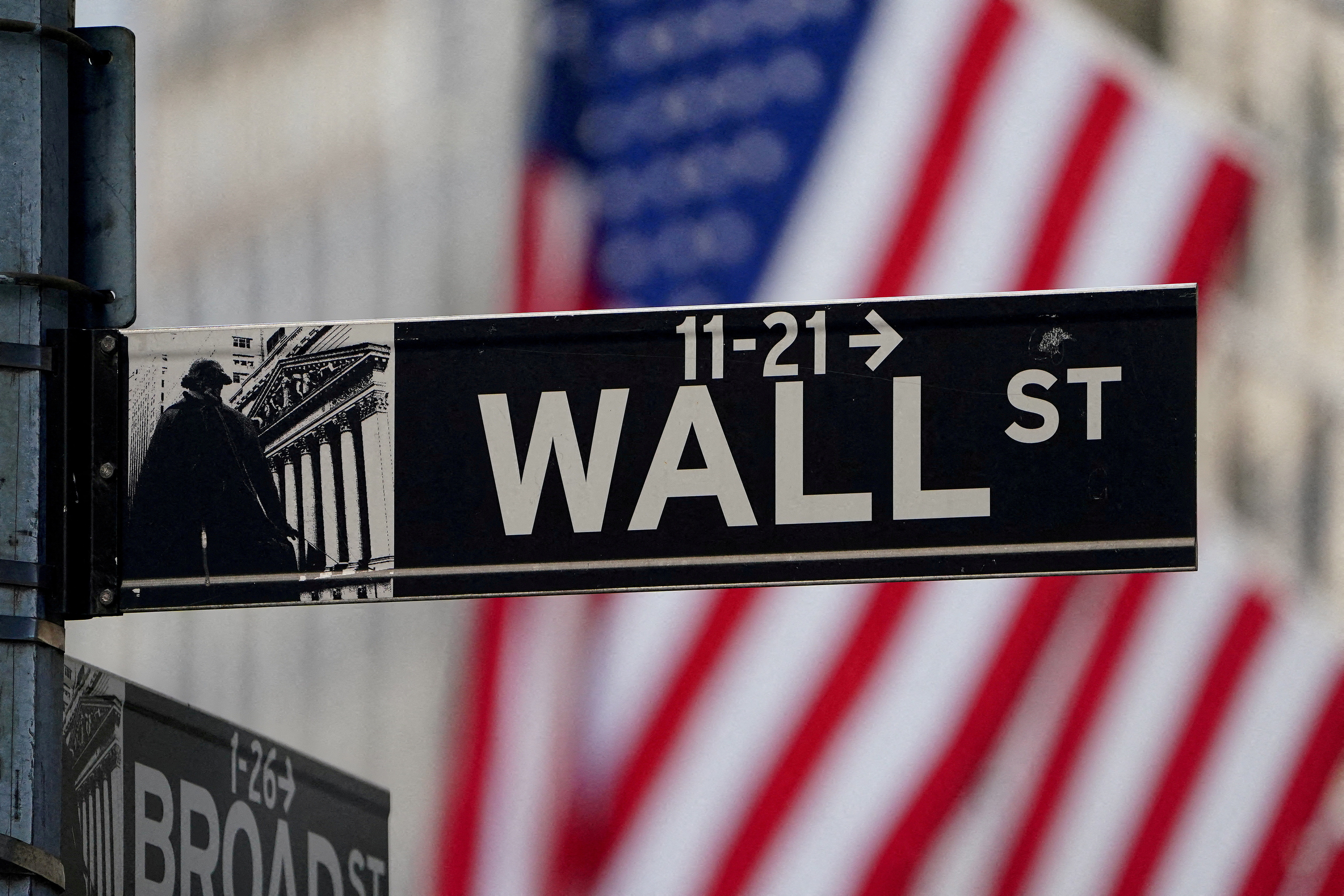[ad_1]

The Wall Street sign is pictured at the New York Stock exchange (NYSE) in the Manhattan borough of New York City, New York, U.S., March 9, 2020. REUTERS/Carlo Allegri/File Photo Acquire Licensing Rights
NEW YORK, Nov 16 (Reuters) – U.S. bank profits are expected to shrink in the coming months, but the industry has regained its footing after the biggest bank failures since the 2008 financial crisis, analysts said.
Here are quotes from a conference hosted by The Clearing House in New York on bank profits, regulation and deals:
Thomas Michaud, CEO of investment bank Keefe, Bruyette & Woods (KBW), on the industry outlook:
“We think the banking industry’s having a 10% decline in profitability … notwithstanding three of the four largest bank failures in American history happening this spring, the industry’s in good shape,” but will have to weather rising loan delinquencies and competition from fintech companies.
Erika Najarian, an analyst at UBS:
“The banks are actually in pretty decent shape … of course they’re less profitable, we’re in the back end of the cycle.”
“Nobody wants to own a lot of bank stocks, whether it’s large cap, mid cap, ahead of a credit crunch, ahead of a recession.”
Manan Gosalia, an analyst at Morgan Stanley:
“For the regional banks specifically, we are at a stage right now where we’re in the worst part of the cycle … We’re likely to see deposit costs rise, cost of funding rise well into 2024, so there are some challenges on the revenue side. It is likely here that loan growth will slow pretty meaningfully.”
Eugene Ludwig, former comptroller of the currency and CEO of Ludwig Advisors, on bank mergers and acquisitions:
For failing banks in a sale process run by the Federal Deposit Insurance Corp., “as long as they have the backstop to get the liquidity back the underlying institution may be very attractive to be acquired …. The more we can get the private sector back in the game, the better off we are.”
Mitch Eitel, managing partner of the financial services group at law firm Sullivan & Cromwell:
“No one is going to touch a failing institution while it’s failing, swoop in, and buy, particularly in our current environment where there are embedded costs that’s on balance sheets that no one can recognize.”
Michaud, CEO of KBW:
“There are a lot of healthier banks, I think, that would look to acquire the banks that have low credit performance. But the length of time it takes to get a merger application approved has doubled in the last two and a half years. And that’s really raised the bar for the willingness of potential acquirers.”
Reporting by Lananh Nguyen, Nupur Anand and Pete Schroeder in New York
Editing by Mark Potter
Our Standards: The Thomson Reuters Trust Principles.
[ad_2]
Source link
